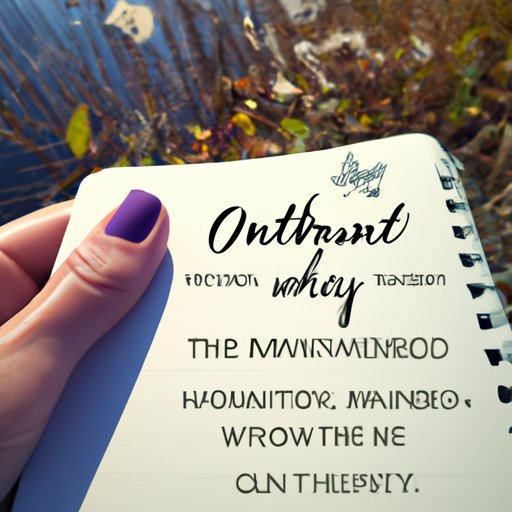
Introduction
Stress is a part of life, but if left unmanaged, it can have serious negative effects on our mental and physical health. It’s crucial to develop coping mechanisms to manage stress effectively and ensure it doesn’t control our lives. In this article, we’ll explore some quick and effective ways to relieve stress so you can feel more calm, centered, and in control.
Mindfulness Meditation
Mindfulness meditation is a popular and effective technique for reducing stress. It involves focusing your attention on the present moment, letting thoughts come and go without judgement. Researchers have found that practicing mindfulness meditation can lower cortisol levels and reduce symptoms of anxiety and depression.
To get started with mindfulness meditation, find a quiet space where you won’t be disturbed. Sit comfortably with your eyes closed, and focus on your breath. If your mind wanders, gently bring it back to your breath. Start with just a few minutes a day and gradually increase as you become more comfortable.
Deep Breathing Exercises
Deep breathing exercises can be done anywhere and are a quick and easy way to calm the mind and reduce stress. By slowing down your breathing, you can lower your heart rate and activate the relaxation response in your body.
One effective technique is to inhale through your nose for 4 seconds, hold your breath for 7 seconds, and then exhale through your mouth for 8 seconds. Repeat this cycle a few times, focusing on the rise and fall of your chest.
Physical Exercise
Exercise is a proven stress-reliever, as it helps release endorphins, reduce muscle tension, and improve mood. Even short bursts of physical activity can make a big difference. Try doing some yoga poses or going for a brisk walk during your lunch break.
A study published in the Journal of Personality and Social Psychology found that just 10 minutes of physical activity can improve mood and increase feelings of happiness and well-being.
Progressive Muscle Relaxation
Progressive muscle relaxation is a technique that involves tensing and then relaxing your muscles in a sequence. This can help release tension and promote relaxation throughout your body.
To perform this technique, lie down or sit in a comfortable chair and focus on your breath. Starting at your toes, tense the muscles for a few seconds before releasing them. Move up your body, tensing and relaxing each muscle group as you go. Finish by breathing deeply for a few minutes.
Spending Time in Nature
Spending time in nature has been shown to reduce cortisol levels and improve mood. If you’re feeling stressed, take a few minutes to step outside and connect with the natural world. Go for a walk, sit in a park, or simply look out a window at a tree or the sky.
Research has found that spending just 20 minutes a day in nature can help reduce stress and improve mood.
Gratitude Journaling
Gratitude journaling is a technique that involves writing down things you’re grateful for to shift your focus away from stress and towards positivity. By taking a few minutes to reflect on what you’re thankful for, you can cultivate a more positive mindset and reduce stress.
Try setting aside a few minutes each day to write down three things you’re grateful for. They can be big or small, and can include moments of kindness, accomplishments, or simply things that brought you joy.
Conclusion
Managing stress is an important part of maintaining overall health and well-being. The techniques outlined in this article – mindfulness meditation, deep breathing exercises, physical exercise, progressive muscle relaxation, spending time in nature, and gratitude journaling – can all be effective ways to reduce stress quickly and improve your mood. Try incorporating one or more of these techniques into your daily routine to find what works best for you. Remember, taking care of your mental health is always worth the effort.




